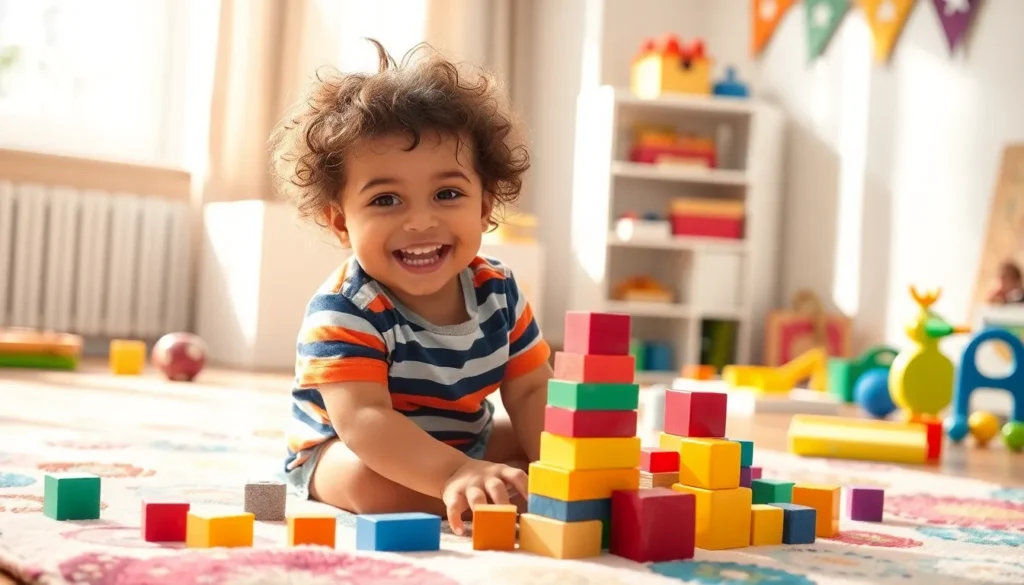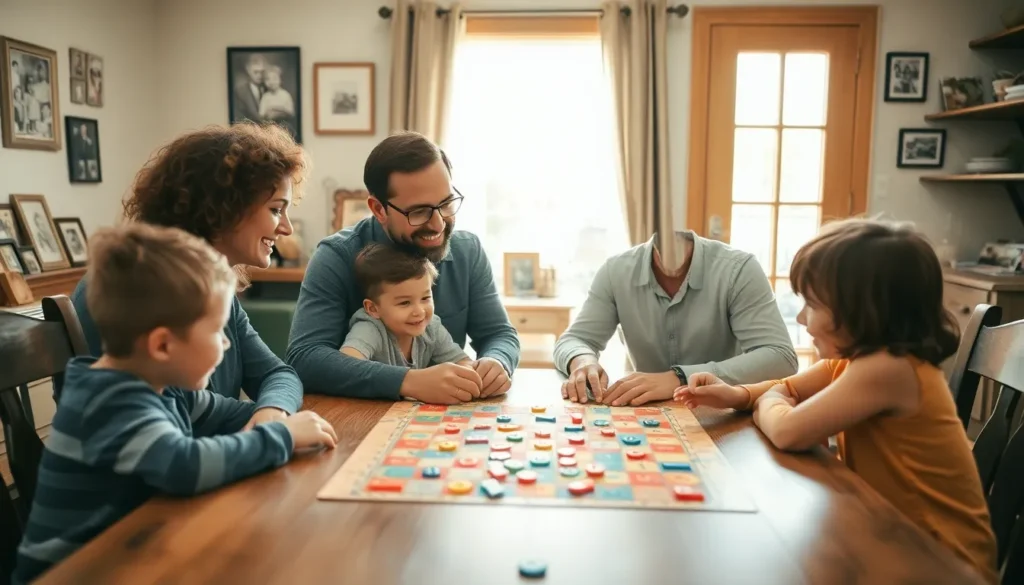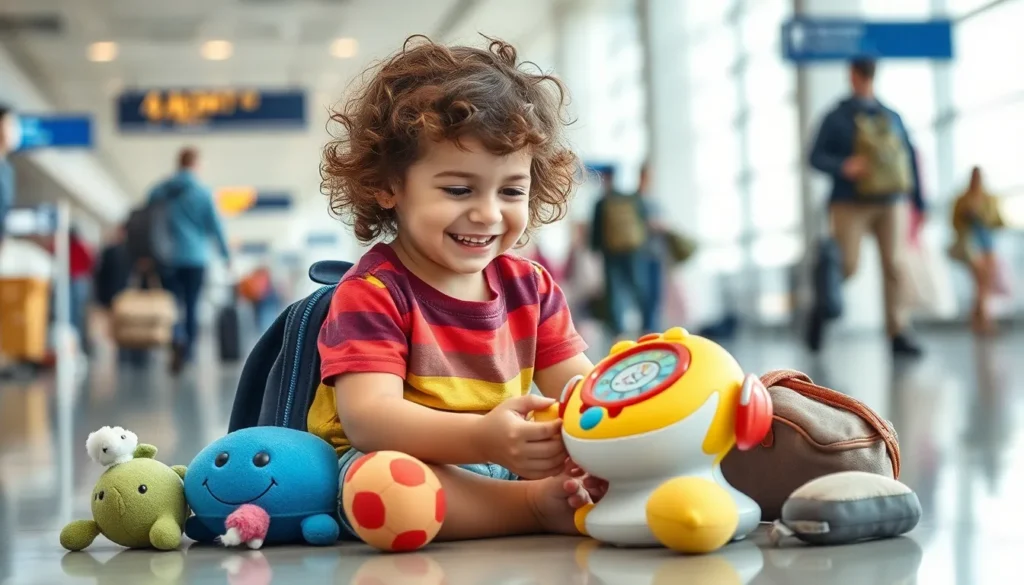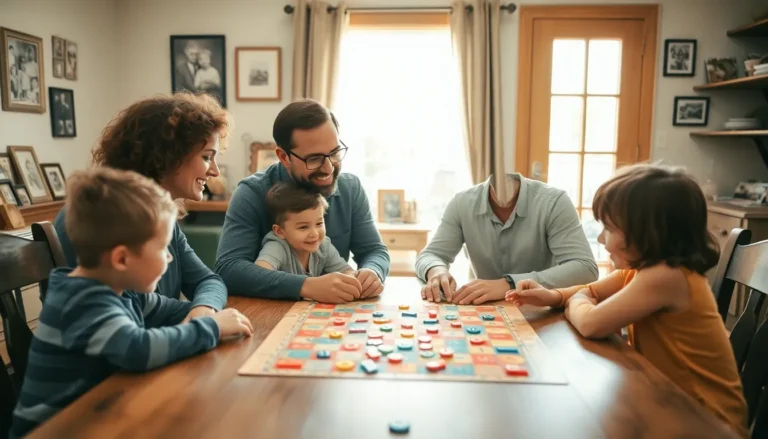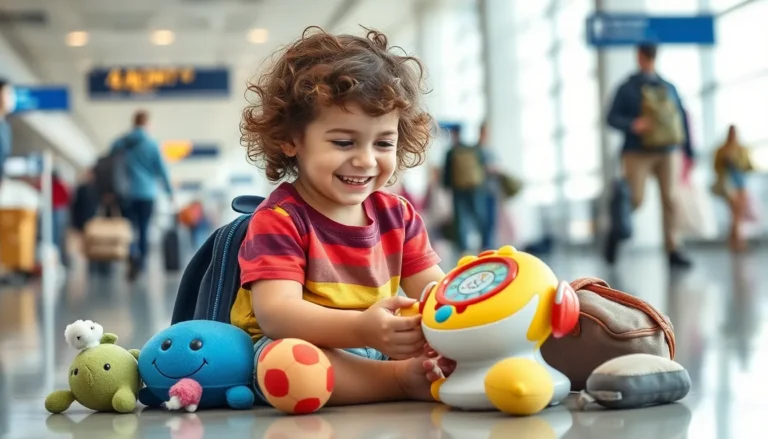Table of Contents
ToggleWhen it comes to toddler playtime, it’s not just fun and games—it’s a vital part of their development. Picture this: tiny hands building towering block castles while their imaginations run wild. These little architects are not just playing; they’re laying the foundation for critical thinking and problem-solving skills. Who knew that a simple game of peek-a-boo could be a masterclass in social interaction?
Benefits of Toddler Playtime
Toddler playtime offers numerous benefits that significantly contribute to a child’s overall development. Engaging in various activities helps enhance physical abilities, cognitive skills, and social interactions.
Physical Development
Active play supports motor skills as toddlers run, jump, and climb. Balance improves through activities like hopping and playing on playground equipment. Fine motor skills develop as children manipulate toys, such as stacking blocks or coloring with crayons. Achieving proficiency in these physical tasks builds coordination and strength. Regular movement also promotes healthy growth by supporting cardiovascular fitness and encouraging a routine of physical activity.
Cognitive Growth
Engaging in play stimulates cognitive development and problem-solving abilities. Activities like puzzles and memory games encourage critical thinking and enhance memory retention. Experimenting with different materials, such as sand or clay, boosts creativity and introduces scientific concepts. Observing cause-and-effect relationships during play fosters logical thinking. Essentially, playtime creates an environment where toddlers discover and learn, setting the foundation for lifelong learning.
Social Skills Enhancement
Interacting with peers during play fosters social skills and emotional intelligence. Sharing, taking turns, and cooperation develop through group play activities. Conflict resolution skills sharpen when toddlers navigate disagreements with friends. Positive social interactions enhance self-esteem and build confidence in communicating. Through play, children learn empathy and build connections, forming the basis for lasting relationships.
Types of Toddler Playtime
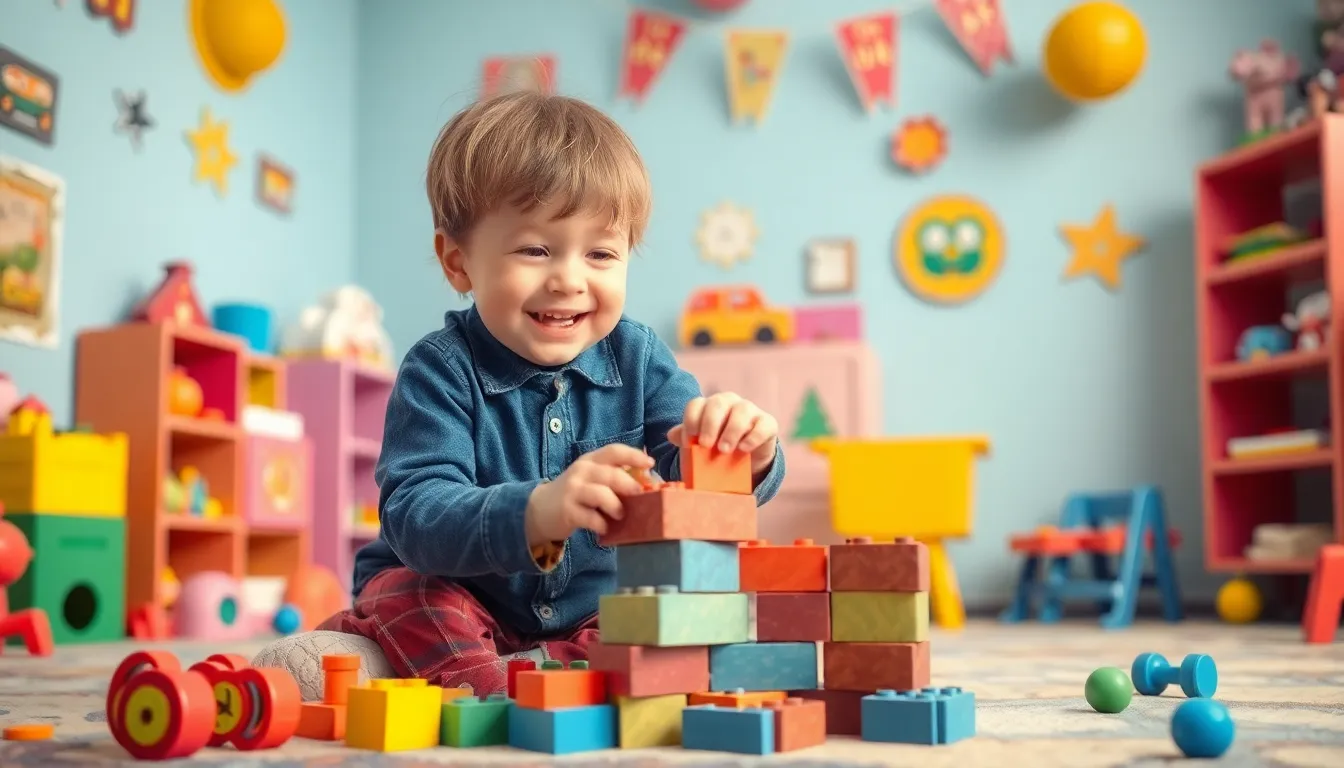
Toddler playtime features a variety of play types that contribute to development. Two main types include structured and unstructured play.
Structured Play
Structured play involves organized activities led by adults. Examples of this type include guided games, group activities, and specific lessons. Such play encourages cooperation and helps toddlers follow rules. Games like Simon Says and follow-the-leader improve listening skills and physical coordination. Adults often facilitate structured play, providing a framework that fosters social skills. Additionally, structured play can help reinforce knowledge through educational games like counting or memory challenges.
Unstructured Play
Unstructured play allows toddlers to explore freely, promoting creativity and independence. This type of play includes activities like imaginative role play, building with blocks, or exploring nature. Freedom during unstructured play encourages problem-solving and decision-making skills. When toddlers choose their activities, they express preferences and develop individual interests. Without adult direction, they often invent games and scenarios, enhancing their social interaction with peers. Unstructured play nurtures emotional resilience, fostering a child’s ability to navigate challenges independently.
Tips for Encouraging Toddler Playtime
Creating an engaging environment encourages toddlers to play. Focus on safety and interactive toys to promote development.
Safe Play Environment
Ensure safety by removing hazardous objects from play areas. Use soft surfaces or mats to cushion falls and provide a safe play zone. Organizing toys and keeping them within reach encourages independent exploration. Maintaining a clutter-free environment minimizes distractions and promotes focus. Regularly inspecting play materials for wear or damage enhances safety and enjoyment during playtime.
Interactive Toys and Activities
Select toys that stimulate cognitive and social development. Puzzles and building blocks encourage problem-solving and fine motor skills. Choose toys that foster creativity, such as art supplies and dress-up clothes. Engaging toddlers in group activities enhances cooperation and listening skills. Providing opportunities for outdoor play promotes physical activity and social interaction with peers.
Observing Playtime Behavior
Playtime reveals significant behaviors that contribute to toddler development. Observing these behaviors helps caregivers understand children’s needs and growth.
Communication Skills
Toddlers communicate in unique ways during play. They use gestures, facial expressions, and vocalizations to express themselves. Engaging in play encourages them to learn new words and phrases. Interaction with peers or adults enhances verbal skills through dialogue and storytelling. Asking questions during play stimulates curiosity and fosters conversational exchanges. Social games like “Simon Says” promote listening and following instructions, essential components of effective communication.
Problem-Solving Abilities
Problem-solving skills often emerge during playtime activities. Toddlers encounter challenges that require creative solutions, like assembling a block tower or completing a puzzle. When they experiment with different approaches, they learn cause-and-effect relationships. Playing with toys that allow exploration supports their critical thinking. Collaborative play, where toddlers work together towards a common goal, enhances problem-solving, as they share ideas and strategies. Observing these moments provides insight into their cognitive development, showcasing their ability to think critically and adapt.
Toddler playtime is an essential component of early development that goes beyond mere entertainment. It fosters critical skills such as problem-solving and social interaction while enhancing physical abilities. By engaging in both structured and unstructured play, toddlers explore their creativity and build resilience in a safe environment.
Caregivers play a vital role in facilitating enriching play experiences. By providing a variety of stimulating activities and ensuring a safe space, they can encourage exploration and learning. Observing toddlers during play offers valuable insights into their developmental needs and preferences. Ultimately, prioritizing playtime paves the way for a well-rounded foundation that supports lifelong growth and learning.

